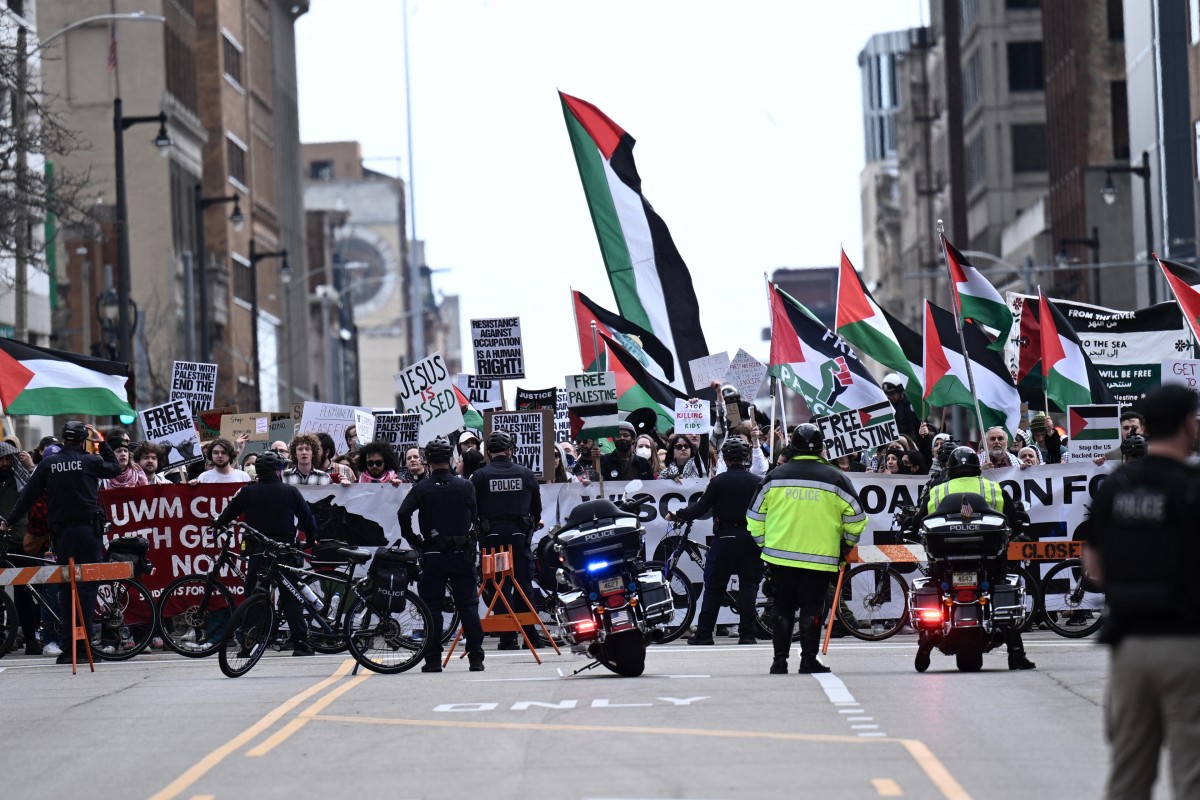Efforts to deliver aid to war-torn Gaza by constructing a seaport or through airdrops are a sign of international powerlessness to end the conflict, the head of Amnesty International said Wednesday.
Gaza is suffering a severe humanitarian crisis as Israel’s war on Hamas drags on, with the United Nations warning of looming famine as the flow of aid trucks from Egypt has slowed.
With only a small fraction of the basic supplies needed to sustain Gaza’s 2.4 million people coming in by land, foreign governments have turned to airdrops and a maritime corridor from Cyprus.
But Agnes Callamard, Amnesty’s secretary general, said nobody was holding Israel to account over the delays to deliveries by land.
“The international community must be prepared to hold Israel to account… We’re not holding the stick that will allow for those violations to stop,” she said in Madrid.
“So the airdrops, the construction of a port, are a sign of powerlessness and weakness on the part of the international community. Meanwhile, we continue to transfer weapons. That’s really unacceptable.”
Earlier this month, US President Joe Biden said Washington was planning to establish a temporary port for aid deliveries to Gaza, which the Pentagon said would take up to 60 days and involve 1,000 US personnel.
But Callamard said it was a “huge concern” that the international community seemed to have accepted that the deadly conflict would drag on.
“The proposed investment into building a port and transporting humanitarian assistance via sea appears to indicate that the international community… are expecting the situation to last. Why are you making an investment that is going to take two months?” she said.
“That is extremely worrisome. More than 30,000 people have died.”
Her remarks came after Amnesty and 24 other humanitarian organisations issued a statement saying air drops and sea routes were “no alternative to aid delivery by land” as they could only provide a fraction of the assistance.
“Airdrops are unable to provide the volumes of assistance that can be transported by land. While a convoy of five trucks has the capacity to carry about 100 tonnes of lifesaving assistance, recent airdrops delivered only a few tons of aid each,” it said.
Callamard said much more was needed.
“We really need to be exploring other means and building a port that’s going to take two or three months is just not good enough,” she said.
“We need to do far more if we are to uphold international obligations, including the responsibility to prevent genocide.”
The war began with Hamas’s October 7 attack that resulted in the deaths of about 1,160 people in Israel, mostly civilians, according to an AFP tally of official figures.
Israel’s retaliatory campaign against Hamas has killed at least 31,272 people in Gaza, mostly women and children, according to the Hamas-run territory’s health ministry.







